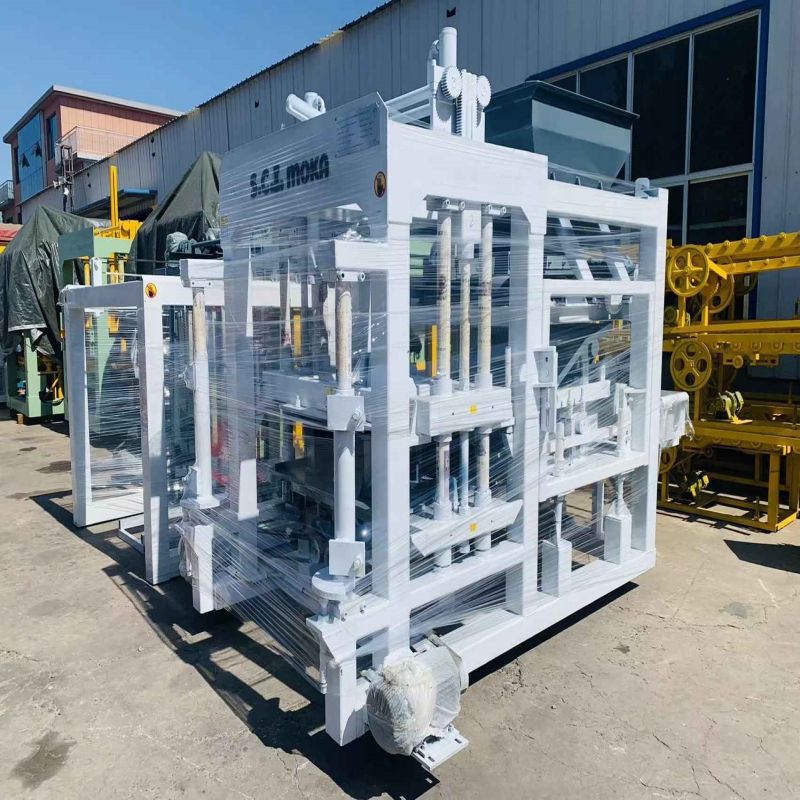
Image source:Aiwei block machine
Introduction
South Africa, often referred to as the “Rainbow Nation” due to its diverse culture and geography, is also a nation in transition. As the country continues to develop and modernize, infrastructure plays a crucial role in supporting economic growth, urbanization, and improving the quality of life for its citizens. A key player in this modernization is the use of paver block machines. In this article, we’ll explore the role of paver block machines in South Africa, their impact on infrastructure development, sustainability, and the broader economic landscape.
The Rise of Paver Block Machines in South Africa
South Africa has undergone significant transformation since the end of apartheid in the early 1990s. The need for infrastructure development and urbanization has been on the rise to accommodate the growing population and promote economic activities. Paver block machines have emerged as essential tools in this journey of transformation. Several factors have contributed to their prominence:
1. Versatility: Paver blocks are highly versatile and can be used in various applications, from roads and walkways to public spaces and landscaping. This adaptability makes them a valuable choice for diverse projects.
2. Aesthetics: Paver blocks come in various colors, shapes, and sizes, allowing for creative and visually appealing designs in urban planning and landscaping.
3. Durability: Paver blocks are known for their durability, with the ability to withstand heavy traffic and adverse weather conditions. This longevity minimizes maintenance costs and ensures infrastructure remains functional for years.
4. Environmental Benefits: Paver blocks often allow for water permeability, reducing stormwater runoff and helping manage water resources effectively.
5. Local Manufacturing: The availability of paver block machines in South Africa and neighboring countries has contributed to local manufacturing, creating jobs and boosting the economy.
Impact on Infrastructure Development
The adoption of paver block machines has significantly influenced infrastructure development in South Africa:
1. Road Construction: Paver blocks are widely used in road construction, improving the quality and longevity of road networks. This is vital for connecting urban and rural areas and facilitating the movement of goods and people.
2. Urban Planning: Paver blocks are integral to urban planning and the creation of pedestrian-friendly spaces. Walkways, squares, and plazas have been transformed into aesthetically pleasing areas that promote social interaction.
3. Public Spaces: Parks, recreational areas, and public spaces have benefited from paver blocks. These spaces contribute to the overall well-being of communities and encourage outdoor activities.
4. Sustainable Development: The use of permeable paver blocks aids in sustainable development by reducing the risk of flooding and minimizing the strain on drainage systems.
Economic and Environmental Considerations
The utilization of paver block machines in South Africa goes beyond infrastructure; it also has economic and environmental implications:
1. Local Employment: The manufacturing and installation of paver blocks create jobs locally, contributing to employment opportunities and skill development.
2. Sustainable Practices: The adoption of permeable paver blocks aligns with sustainable practices by promoting water management and reducing the heat island effect in urban areas.
3. Cost Savings: Paver blocks’ durability and reduced maintenance requirements translate into cost savings for municipalities and businesses responsible for infrastructure upkeep.
Challenges and Opportunities
While the use of paver block machines in South Africa has brought about numerous benefits, it is not without its challenges:
Challenges:
- Quality Assurance: Ensuring consistent quality in the production of paver blocks is crucial. Quality control measures must be in place to maintain high standards.
- Affordability: While paver blocks offer long-term cost savings, the initial investment can be a barrier for some municipalities and small-scale projects.
- Sustainability: Although paver blocks can promote sustainability, their installation and maintenance must align with environmentally friendly practices.
Opportunities:
- Innovation: There’s an opportunity for innovation in paver block design, materials, and production processes, further enhancing their versatility and sustainability.
- Skills Development: Training programs can be established to equip the local workforce with the skills needed for paver block manufacturing and installation.
- Export Potential: South Africa’s expertise in paver block technology can be leveraged for export, contributing to economic growth.
Case Studies: Successful Implementation
South Africa has witnessed successful implementation of paver block technology:
1. Cape Town’s Promenade: Cape Town’s iconic beachfront promenade features creatively designed paver blocks that not only enhance the area’s aesthetics but also provide a durable surface for pedestrians and cyclists.
2. Soweto Revitalization: The famous Soweto district in Johannesburg has seen the revitalization of public spaces with the use of paver blocks. This has contributed to improved living conditions and community pride.
3. Durban’s Water Management: Durban has embraced permeable paver blocks in managing stormwater runoff, reducing the risk of flooding in urban areas.
Conclusion
Paver block machines have become catalysts for modernization in South Africa. Their versatility, durability, and sustainability have made them indispensable tools in infrastructure development, urban planning, and the creation of aesthetically pleasing public spaces. While challenges exist, the opportunities for innovation, skills development, and economic growth are significant. As South Africa continues its journey of transformation, paver block machines will likely play an increasingly vital role in shaping the nation’s urban landscape and improving the lives of its citizens.
